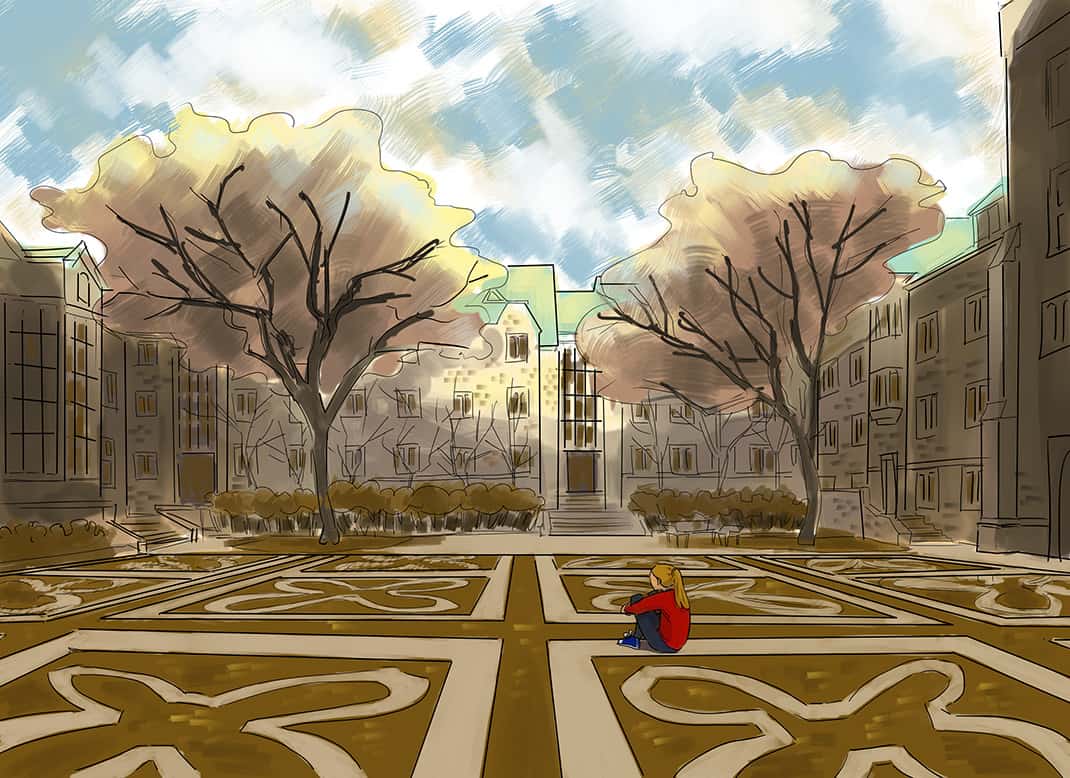Following a resounding vote of no confidence towards Trinity College’s Office of the Dean of Students on September 25, students at the college have sent a letter to the Board of Trustees requesting an investigation into a series of allegations.
The letter, penned by Chair of the Trinity College Meeting (TCM) Leila Martin, lists five damning allegations. It accuses the office of mismanaging drug and alcohol abuse cases; of mismanaging the disciplinary process; of unilaterally altering the structure of the residence readmission committee, thus permitting the return to residence of a student facing sexual assault allegations; and of mishandling sexual assault cases themselves. It also accuses the office of actively putting a student in harm’s way by wrongfully turning him over to the campus police and failing to intervene when the student was allegedly assaulted.
While all allegations listed are unproven, the letter rightly states that their severity should be “enough to give us pause.” They should also be enough to warrant an investigation into the office’s conduct. If these numerous allegations are true, they represent a grave failure on the part of the Dean’s office, and an immediate need for reform.
The Dean’s office purports to foster the well-being and success of Trinity students. It is mandated to do so by working with student leaders, overseeing residence admissions, and most of all, ensuring that students receive sufficient resources and support from the college with regard to non-academic life.
The allegations listed in the TCM’s letter suggest that the office has failed to fulfill these duties.
In April 2017, Trinity College student Tamsyn Riddle filed a human rights application against the University of Toronto and Trinity College claiming that they mishandled her sexual assault case. She alleged that the investigation into her case was “disorganized and delayed,” only to end abruptly when the Dean’s office told her that an agreement had been reached between the school and the alleged perpetrator — without any input from Riddle herself.
The fallout of this has fostered a sense of distrust among students now skeptical of the office’s ability to support them, and rightly so. In cases as severe as sexual violence, alleged mishandlings are deeply concerning — especially from the office that was primarily responsible for Riddle’s safety and for resolving her case, given that U of T’s Sexual Violence Prevention and Support Centre did not exist at the time.
While an important function of the administration is to ensure the safety of its constituents, Riddle’s allegations, as well as those of Co-Head of Trinity Bardia Monavari, suggest that the opposite has occurred in practice.
Monavari was allegedly turned over to Campus Police by the Dean of Students Office in the aftermath of a residence party he apparently had no involvement in. He claims to have been assaulted by the campus police — shoved from behind, his hands placed behind his back after he refused to give the officers his name — while the Assistant Deans of Students watched without interfering.
We should be concerned not only by the gravity of an allegation like this, but by the considerable number of students that came out to stand by it. Out of the 221 students present at the TCM, 209 students voted in favour of the motion of no confidence. In the letter, Martin called this the “largest TCM in history.”
Trinity students will know that such consensus is rare when deliberating on large-scale matters. In 2014, the TCM found themselves divided over motions to strip the TCM constitution of references to “Men and Women of College” and to desegregate the end-of-year TCM. The motions intended to expand the constitution’s recognition of gender identity to include those who do not fit into binary ‘male’ or ‘female’ gender roles. Both motions failed in secret ballot votes.
Such division only highlights contrasting instances of near-unanimity. If there’s one thing the attendees of the TCM can currently agree on, it’s their lack of confidence in the Dean of Students Office. The students who have worked to make their concerns heard should be applauded for their efforts and their willingness to confront the administration.
What is also concerning is that the office has yet to publicly acknowledge its constituents’ concerns. When asked to comment on Monavari’s allegations, the office released a cursory statement to The Varsity listing safety as a top priority for the college, and refused to comment further. Over two weeks have passed since the alleged incident, and the only substantial commentary from the administration has been from Provost Mayo Moran, who placed a suspension on alcohol-licensed events at Trinity effective Thursday, October 12, citing concerns for safety.
That an administration is not willing to engage with students following an instance like this is untenable for maintaining a successful relationship with the body it is supposed to represent. The gravity of the allegations make it all the more necessary for the students’ demands for accountability to be granted.
An investigation is a necessary course of action to ensure that the administration takes these issues seriously and to rebuild the currently broken relationship between the students and administration at Trinity. The investigation ought to be administered by the Trinity Provost so as to ensure that its recommendations are followed. Moran herself has a wealth of experience with handling matters of sexual violence on campus: over the course of 18 months, she led the expert panel for the University of Toronto’s sexual violence policy, meeting with students, faculty, and staff in order to draft recommendations for the policy.
What is at stake here is the well-being of students — something that the administration must, as a matter of duty, take responsibility for. To sit idly by without action is to alienate students and, worse, to jeopardize their well-being. An investigation is a step in the right direction for an administration apparently headed the wrong way.


